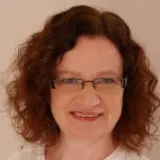Please note: this event has passed
Video recording of the Inaugural Lecture
If you missed the lecture, then don't worry! You can watch the full lecture below.
Professor Andrew Leather
Surgery and Systems: a journey of collaboration
Abstract
Collaboration is the action of working with someone to produce something. Collaboration is critical within the surgical team dealing with a major trauma case or a patient with perforated diverticular disease. Collaboration between passionate medical students and academics can catalyse innovative global health teaching. Collaboration across multiple and diverse stakeholders has the potential to address neglected areas of global health policy. Research collaboration between partners in the global south and north must be genuine to avoid harm and produce knowledge with purpose. Strengthening medical education in a post-conflict low-income setting is possible when stakeholders collaborate over an extended period – the same can be said for improving referral processes or dealing with an Ebola outbreak. During this talk, I reflect on a career journey that has a common thread – of collaboration.
Biography
Andrew Leather is Professor of Global Health and Surgery. His thesis on ‘Free Malignant Cells in Colorectal Cancer’ investigated the causes of local recurrence after surgery. He undertook postgraduate surgical training in South-East England and Canada. In 1996 he was appointed Consultant in Colorectal and General Surgery at King’s College Hospital, where he held various leadership roles including Clinical Director for Surgery. In 2000, he started a health partnership between KCH and a maternity hospital in Somaliland. He subsequently founded the King’s Global Health Partnerships, which supports health professionals in Africa to strengthen health systems. He co-developed the intercalated BSc and the MSc in Global Health. He co-chaired the Lancet Commission on Global Surgery between 2013-2015, and his research focuses on improving outcomes for surgical patients in low resource settings.
Professor Gillian Tully
The Best and Worst of Forensic Science
Abstract
Forensic science, at its best, involves the application of knowledge gained through scientific study to the evaluation of chemical, biological, physical or digital traces. Interpretation is carried out in the context of case circumstances, evaluating the probability of trace findings under prosecution and defence propositions. At its worst, what can be labelled as forensic science is little more than dogma, with ‘experts’ asserting their opinions without basis in science.
My career spans research and method development, creation of data for evaluation of trace findings, implementation of novel methods into casework and presentation of expert evidence, but it has also involved challenging dogma dogma and advocating for scientific reliability.
It is in the coalescence of research, casework and education that forensic science thrives, which is why a professorship in King’s Forensics is my ideological ‘home.’
Biography
Gillian Tully started research in forensic science during a placement completed as part of her Applied Biology BSc at Cardiff University. Her PhD research on forensic genetics followed at the Forensic Science Service; she remained there until its closure, when she was Head of Research.
From 2014 to 2021, she was Forensic Science Regulator for England and Wales, setting quality standards for forensic science in the Criminal Justice System and advising and challenging Government. She was awarded a CBE for services to forensic science in 2020.
In addition to her role as Professor of Practice for Forensic Science Policy and Regulation, she works for a police force collaboration and runs her own business supporting quality and innovation in forensic science organisations in the UK and overseas. Her research interests include improving the quality and effectiveness of forensic science and the interface between science and the law.
Event details
Lecture Theatre 1, New Hunts House, Guy's CampusGuy’s Campus
Great Maze Pond, London SE1 1UL

